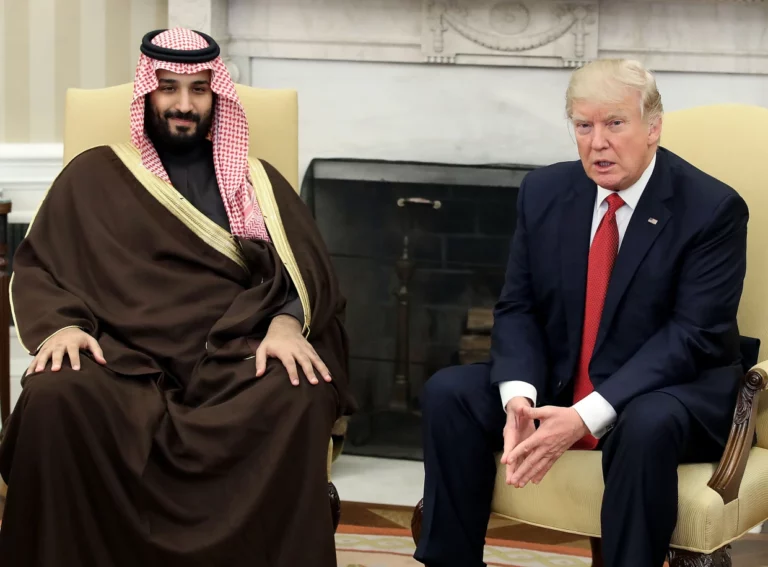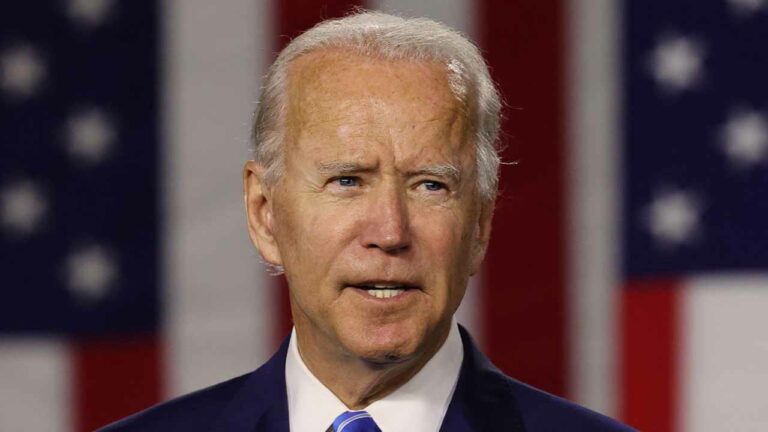Many progressives are ignoring U.S. aggression around the world despite its involvement in many wars and expanding arsenal of nuclear weapons. Medea Benjamin joins Paul Jay on theAnalysis.news.
Paul Jay
Hi, I’m Paul Jay. Welcome to the Analysis News, and this is going to be part two with Medea Benjamin. Don’t forget a donate button at the top of the webpage, and as much as you might be getting tired of hearing me say that, I’m sort of tired of having to say it, but what the heck, that’s what nonprofit journalism is, and if you’re watching on YouTube, hit the subscribe button, and here’s the music.
So this is a follow-up discussion on part one of my interview with Medea Benjamin, and I’m not going to do the long introduction again, but here’s Medea and she’s the co-founder of Code Pink and author of, what, four or five books on foreign policy.
Thanks for joining me again, Medea.
Medea Benjamin
Good to be on with you Paul.
Paul Jay
So a few years ago, I believe you were there, there was a People’s Summit held in Chicago. Bernie Sanders spoke, the nurses union organized it, and there were sessions and all kinds of topics, and I remember that those of us who do care about this were talking to each other and saying, hold on, where’s the session on foreign policy? And there wasn’t one.
Now, it’s interesting that when Biden and Sanders had these working groups, there wasn’t a working group on foreign policy in the lead-up to the elections. Maybe because there were such differences on foreign policy, they figured they couldn’t get together or nobody cared?
I don’t know, but, you and your partner in crime, Jody Evans and the Code Pink women and a few others have been dedicated fighters for an anti-war movement in the United States, but it’s been quite a while, maybe since the massive demonstrations against the Iraq war, that there has been much of an anti-war movement in the United States.
And I said this in an interview the other day and somebody wrote in on YouTube, I don’t know what left you’re talking about the left I know, we’re all interested in foreign policy. Well, yeah, but, boy, it ain’t much. So if you agree with that proposition, why?
Medea Benjamin
I think it’s complex and maybe we can explore some of those different areas, we had a very strong anti-war movement. Well, I’m old enough to remember the anti-war movement of the Vietnam days. That’s where I got my start, and that was because there was a draft, and when you have a draft, you have an anti-war movement that has a lot of young people and a lot of energy to it. The end of the draft did a lot to end the anti-war movement.
The Iraq war built up an anti-war movement, and we had several demonstrations with hundreds of thousands of people out in the streets. Then when Obama came in, the anti-war movement fell apart, and I think it’s for several reasons.
Paul Jay
Can I ask a question before you go there?
Medea Benjamin
Yeah.
Paul Jay
Didn’t it fizzle out really even before Obama came in? How much of an anti-war movement was in the year or two before Obama was elected?
Medea Benjamin
Well, when the war started dragging on, there becomes less and less of an anti-war movement, but I would say that we were still able to mobilize people. We still had small groups all throughout the country. Code Pink still had chapters around. So I would say there still was an anti-war movement, certainly not as strong as when you think you can stop a war, and especially when people get demoralized, because with all the work we did to stop the war in Iraq, we didn’t stop that war.
So you’re right, it was much less than before, but I would still say there was an anti-war movement.
Paul Jay
And the reason I make the point is that some people were arguing, even some of the what I’m not sure are really left, but they think of themselves as left, that it’s better to have Trump back again because there’s more possibility of an anti-war movement. Well, first of all, I didn’t see any big anti-war movement during the first four years of Trump, and the last time there was a sustainable anti-war movement was actually when the Democrats were in power, and that’s the Vietnam War. Now, yes, there was a draft, but it’s not like when the Republicans are in there’s some sustainable anti-war movement going on. So, anyway, continue.
Medea Benjamin
Well, let’s remember that there were 50,000 Americans that lost their lives in Vietnam, and the powers that be understood that there are other ways to make war. You don’t have to have a draft. You can do a lot of it through air-power. You want to minimize the casualties of Americans. You can even now high tech, have them be sitting in ergonomic chairs, in air-conditioned rooms, and pressing buttons to kill people through drones. In fact General Atomics, the drone maker, just bragged this week about how now you can do a drone strike on your laptop. You don’t need any clunky kind of control mechanism.
So wars have changed and there’s a lot of contracting, a lot of private contractors, and there’s a lot of proxy wars where we pay other people to go to war for us. So the ways of going to war have changed when you don’t see Americans coming back in body bags, and remember, actually, in the Iraq war, it was illegal to photograph Americans coming back in their flag-draped caskets coming into Dover.
So I think the ways of fighting wars have less what they call I hate the term, but skin in the game, less people actively suffering from that, and that cuts down on the number of people who are going to be actively involved. I mentioned that I felt that the anti-war movement fizzled when Obama came in because people didn’t want to protest the first black president. They also felt that he was going to get us out of the wars. At least he promised to get us out of the war in Iraq.
Then there were other issues that became much more urgent. We were in the midst of a financial crisis. Students were losing their ability to go to college and people were losing their homes, and there was a lot of economic chaos. Then as time went by, the environmental movement picked up and a lot of young people who would normally have gone into the anti-war movement saw the urgency in front of them of dealing with the climate, and we lost a lot of the Code Pink people who decided that the climate issues were much more urgent and then the wars just became part of the background noise.
After you have war for more than a decade going on for young people, it’s just that’s the way the U.S. is. It fights wars and it stops getting covered by the media. So you barely know that these wars are still existing. So those are some of the reasons and I’m sure there are more, but we have felt the difficulty of building back an anti-war movement ever since the days that Obama came in.
Paul Jay
And one of the things that’s also gone by the wayside, and this is not connected directly with Obama because it had happened before that, but as we talked about in the first interview, there’s no movement against nuclear war, for the reduction of nuclear weapons.
This idea that it’s not an existential threat because the “Cold War” is over, because they’ve got a new one going with Russia and China now, but people don’t get how close we are to nuclear annihilation. A lot of the people I’ve talked to, including Daniel Ellsberg, who know this issue, they really don’t believe it’s a question of if there’s going to be a nuclear war.
It’s about when. That it’s practically inevitable the more weapons you have, and even if it’s accidental, it’s more likely to be started accidentally than deliberately, but the threat is very real, but there’s virtually no movement, hardly anywhere. There’s a little bit, but not on any scale that breaks through even progressive consciousness.
Medea Benjamin
Well, there is a global movement to end nuclear weapons, and that’s very strong in certain countries in the United States it’s not.
Paul Jay
Let me add Canada too. There’s not a pipsqueak in Canada.
Medea Benjamin
Well, I think part of the problem and this is related to the larger anti-war movement is how do you fight nuclear weapons? How do you fight the military-industrial complex, especially for young people who want to see the results of their work in their lifetimes? If you give them the choice, do you want to fight against nuclear weapons or do you want to get an electric fleet in your university?
Or do you want to get your town to help subsidize solar energy? What are they going to pick? Something that’s real, tangible, that they can say, wow, I helped to do this, or something that is really going to take many decades and you might never see the results and you might well lose.
Paul Jay
Well, you can kind of say that about anything, but I think it’s part of the failure of the, and I include myself in this because it’s only since I’ve been talking to Ellsberg that I focused on this, but there are some very concrete things. For example, vastly reducing or eliminating the fleet of ICBMs. They’re very dangerous. They can go off accidentally. They have no real military function and they cost ridiculous amounts of money and there’s a whole other expansion taking place of ICBMs. Some of the issues, they can be quite concrete. Like, for example, at least the United States could say they won’t have a first strike possibility. Just take that off the table. But it’s again part of the weakness of the anti-war movement that this issue doesn’t become more focused.
Medea Benjamin
Yes, and people are not educated about the issues by the mainstream media, you really never hear about these, and so it doesn’t go into people’s consciousness, and we haven’t had a nuclear weapon used since the time of World War Two. So it’s not something that’s immediate in people’s minds, and that generation is dying off. Yet. On the other hand, when Trump was in power, there was suddenly a lot of interest around the first use issue and trying to stop Trump from having the ability to, quote, put his finger on the nuclear button.
There’s a lot of Democrats who feel much more comfortable about it when it’s a Democrat in power, which they shouldn’t be, but we did have a flurry of activity under Trump around that issue.
Paul Jay
And let me just point out two things that I’ve learned from talking to Daniel Ellsberg. Number one, there are perhaps several hundred people with their fingers on nuclear buttons. It’s not just the president. That’s an entire fiction of that. This thing, the suitcase the president carries around and he’s the only one that can do it. The authority has been delegated to many, many people, and so the scenario in Dr. Strangelove of some crazy guy in charge of a nuclear base being able to launch is actually quite true.
There are people at his level that could launch. That’s part of why this whole situation is so dangerous, and the other thing is that nuclear weapons have been used since World War Two as a threat.
And I encourage everyone to read Ellsberg’s book Doomsday Machine because he goes through the various examples of times from Reagan on where the threat of using nuclear weapons has been part of American foreign policy in very real terms, not just sort of as an abstraction. So what do we do about it?
The reason I think nuclear weapons is perhaps something that actually could galvanize people if they got the danger is like the draft. It directly affects people’s lives if you get the connection. For a long time, climate change was an abstraction, and I know nuclear war seems like an abstraction, but ain’t nothing abstract about it.
Medea Benjamin
Well, I think it’s a little more concrete when we talk in terms of money that’s being spent and where the money needs to go, and I think the pandemic has put that in a greater focus for people to understand that the threats to the United States are not coming from abroad. They’re coming from at home, and not just the pandemic. It’s the white nationalist movement that we recognize not only trying to take over the capital, but in these massacres that happen now on a regular basis, and a lot more people do understand the climate crisis.
I think under the Bush administration, we have some good people in government now who really care about those issues and we might see some real progress. All of that means that money’s at some point have to be accounted for. You can’t have these trillion-dollar covid relief packages and never say, well, OK, now when does the bill come due? And every year, the fact that we spend about a trillion dollars in the Pentagon budget plus the other expenses like nuclear weapons that are not coming out of the Pentagon budget, but coming from energy, that there is more of a call for shifting the money.
We had a vote last year to cut the military budget by 10 percent. In the past, we would have gotten a handful of congresspeople. This time we got over 90. There is now a caucus in Congress called the Defense Spending Reduction Caucus to try to highlight this issue. There were just 40 members of Congress that wrote a letter to Biden about this issue before his budget comes out, and we at Code Pink are part of a coalition that’s been building and going down into local communities, having them pass resolutions, calling for a shifting of the money and hooking up with the Black Lives Matter folks and others to say take money out of the police departments and take money out of the military and shift it into the needs we really have here at home.
So I think there is a place where we can get some momentum, where we have groups like the Poor People’s Campaign that have put it front and center together with racism, poverty, militarism, and climate, as four issues we have to see intertwined and dealt with, so I am hopeful that is an avenue that we can use to perhaps not build up an anti-war movement that’s going to get out on the streets to, say, bring the troops back from Iraq or Afghanistan, but is going to say shift the focus of U.S. foreign policy away from militarism and towards dealing with the real issues of national security that affect us today.
Paul Jay
And let me just add to that, while there has to be a just transition for fossil fuel workers to a green economy, and I think and I don’t even understand why Biden hasn’t been talking about that, because even in purely electoral terms, it would be good for them. They should just promise fossil fuel workers that you are not going to lose wages if you go and start building windmills and windmill salaries are not as high as coal salaries then we’ll make up the difference, but I think they need to do the same thing in arms manufacturing. They have to say we’re going to convert arms manufacturing as part of a green infrastructure plan to making green infrastructure, whether it’s windmills or solar panels or retrofitting, but say the same thing to workers in the arms manufacturing industry, that it will be a just transition away from so much arms manufacturing and you aren’t going to lose any wages, but I haven’t heard that from this administration.
Medea Benjamin
Because they’re not talking about cutting the Pentagon budget at all. I do think, though, that there are some areas where it would be hard to compete with the Pentagon in terms of wages because it’s so out of whack from the civilian sector. I remember meeting with machinists and they said, good luck, sweetie, in trying to have this conversion. A lot of our union members retire as millionaires. They get stock in the companies, and when I go to their retirement parties, you recognize how much money they’ve made over their lifetimes being connected to the Pentagon.
Paul Jay
Right.
Medea Benjamin
And when you talk to engineers who want to pay their mortgages and don’t want to work for the Pentagon, they will say to you, what are we supposed to do? The civilian sector doesn’t have nearly the amount of money that the Pentagon can throw around. So it’s a little bit different with the fossil fuel industry because they are private industries that are competing maybe with each other, but there does have to be a paring down of some of the tremendous profits that have been made in the Pentagon contractors.
Paul Jay
But that’s a very different thing. The profits and the wages aren’t the same thing. And I know the wages are high, but if you look at the actual numbers of people at that high wage rate, like mechanics in, not at the more senior levels, it’s not that many people I don’t know the number, but it really isn’t that many people. It wouldn’t take that much money to keep paying them what they were getting and just say, OK, you’ll just get what you were getting.
Medea Benjamin
Yes, I’m just saying, yes, at the higher levels, they’re just going to have to be significant cuts, but for workers who don’t buy into stocks in the companies. Sure, and there are examples that have already been done when there have been base conversions in the United States, and so the the the way to do that, we saw in the 70s and 80s during the time of a lot of those conversions, and it could certainly happen again.
There just has to be the political will to do that, and as you said, we haven’t seen it yet from the Biden administration, but I think we do as a peace movement that is rebuilding itself, we have more of a possibility of effecting the Biden administration than we did the Trump administration, and that gives me a lot more optimism, because during the Trump years, not only was it hard to build up an anti-war movement, but people were saying, who the heck are we going to influence? We don’t have any friends in the White House and now we do. So I think that there are more possibilities under this administration with The Squad that we have in the Congress.
Paul Jay
Well, let me ask about The Squad and what I call the left-Progressives in Congress, because a lot of the members of the Progressive Caucus aren’t always so progressive. But how are they doing on foreign policy?
Medea Benjamin
They haven’t focused very much on foreign policy. Ilhan Omar is fantastic and has introduced lots of legislation, but it hasn’t gone very far because it doesn’t have the backing of the whole Progressive Caucus, but she has been excellent on this. Rashida Tlaib has been very good on some of the issues, like the issues related to Palestine. AOC herself has not been very involved in foreign policy issues, but when she has it, except for Venezuela, it’s been pretty good, hasn’t been very good on Israel-Palestine, but that’s always a tough one.
Paul Jay
Hold on, don’t let her off the hook on Israel-Palestine. What’s her record?
Medea Benjamin
No, we’re not letting her off the hook. Well her record is that she’ll sign on to some of the easier things, like the bill supporting that children not being sentenced in military courts and held in military prisons, but she doesn’t initiate anything, and it’s hard to get her to focus on foreign policy issues in general. I mean, she’s so smart she knows that where she’ll get the support from the broad sectors of the population is around domestic issues. So it’s been hard.
On the other hand, I think somebody like Jamal Bowman, who took over a seat where there was a very important Democrat in terms of his influence in domestic issues, part of his campaigning was about changing foreign policy, and he has been very good. There are people like Marie Newman, a new member of this expanded Squad, who one of the initial things she did was to speak out against the Israelis not giving vaccines to the Palestinians, and that was quite a brave thing to do as a new member of Congress.
So I think we have possibilities with The Squad, and I think that the Progressive Caucus, now under Pramila Jayapal is going to get more serious about what does it mean to be a member of the Progressive Caucus, and they’re now going to have to agree with the progressives on a certain percentage of the votes in order to stay in the Progressive Caucus, and certainly, there’ll be a number of them that deal with foreign policy.
Paul Jay
And how’s Bernie doing? His thinking on Israel-Palestine seemed to evolve over the years. When he appointed Cornel West to the platform committee back when. It was pretty interesting because Cornell took quite a strong, for the Democratic Party, very strong stand on Palestinian rights.
He also seems to have gotten more out of the Cold War thinking. I know Sanders used to talk about NATO in positive terms. I’m not so sure he still does, but how do you assess Sanders on this?
Medea Benjamin
Well, he, too, is much more focused on the domestic issues, but what he has done on the foreign policy front has been some of the best work in the Senate. We relied on him heavily to bring these war power resolutions against the U.S. involvement in the wars in Yemen, and he was critical in doing that and pushing for that to be passed by both houses of Congress, which is pretty astounding. He’s been very good on the issue of going back into the Iran nuclear deal.
I remember after the campaign was over, which is too bad, him doing a major foreign policy speech in which he focused a lot on Iran and talked about the U.S. history of overthrowing Mossadeq and how the U.S. is responsible for what Iran is today. So I think he’s been one of the best senators in terms of foreign policy, and he is involved through Our Revolution, that organization with Progressive International an international organization that is trying to push progressive foreign policies.
But he’s in charge of the very powerful Budget Committee dealing with issues here at home about who’s going to get access to U.S. dollars, and he’s so very consumed with such important issues. We need other people like Chris Murphy and others to take up the mantle, but can’t he as chair of the Budget Committee, raise serious hearings about reducing the Pentagon budget?
Yes, and we are talking to his staff about that. He is not as great on the Pentagon budget issues as we would like. He talks in general terms about how it has to be cut, but he doesn’t do anything specifically, even Elizabeth Warren during the campaign was more specific than he was identifying areas of the Pentagon budget, like the overseas contingency operation, which is just a slush fund for the Pentagon, for that being cut.
We’re working with others to focus on the cutting of foreign bases and how much money could be saved, and there’s very little of a support base in the United States that wants to keep a lot of these foreign bases open. So we think that’s an area where we could make some progress. So I think there is a lot more that Bernie Sanders could do in terms of the Pentagon, and one other I want to say, is that he supported the stationing of the F-35 in his home state, and that was something that a lot of local groups had been trying to lobby him about and actually protest his policy on that and never quite changed his mind on that.
Paul Jay
Well, is that part of what’s holding him back on this whole issue, both his record and current concerns, quote-unquote, in Vermont about keeping a piece of the military pie there?
Medea Benjamin
Right. And it was an issue that always goes back to the issue about jobs.
Paul Jay
That’s where I get back to my conversion issue. Just promise people their wages. It’s not that much money. The way they’re creating money, the amount of money the Fed has been shoving into the stock market to create a ridiculous bubble. I went through this with Bob Pollin, the economist Bob Paul, if you look at the number of people involved in fossil fuel in Pennsylvania, it would be a pittance to promise them all that you keep your same wages. Even if fossil fuel gets phased out in Pennsylvania, you won’t lose a penny
I can’t remember the numbers. It’s actually not that much money, and I think the same thing would apply.
Medea Benjamin
And Bob Pollin is the one who did the great studies showing that money put into the military was the worst in terms of job creation. So it’s not only about how much money each worker gets, it’s how many jobs are we opening up in the economy, and just about any sector would open up more jobs than putting money into the military.
Paul Jay
Yeah, if I remember correctly, it was ten to one. If you put a dollar into military and a dollar into education, you got echo of ten to one in favor of education.
Medea Benjamin
It was two to one.
Paul Jay
Two to one? Two to one. Oh, I’m sorry. I thought it was ten to one. All right. Two to one. Still pretty good. All right. My memory exaggerated.
Anyway, well, that’s just the beginning of a conversation. Let’s try to broaden this more. These issues are existential. Climate change is existential, but so is militarization and nuclear war is existential. Thanks for joining me.
Medea Benjamin
Wonderful talking to you, and let’s hope the next time we talk we have a more broad and powerful anti-war movement.
Paul Jay
I don’t want to wait that long. All right. Thank you for joining us on theAnalysis.news. Don’t forget the donate button. Don’t forget to subscribe on YouTube and I’ll see you next time.







Oil v climate change. Think of war and sanctions as the thirst for oil. Think of the hypocrisy about presumed concern for climate change!
What about Syria and Oil? What about Libya and Oil? What about Venezuela and oil?
Use climate change as a way of raising the issue of war!
Of course they are. It’s a forbidden fruit. I mean think of domestic media landscape in the US. Outlets like NPR or entertainers like John Oliver, they can pretty honestly cover even the most contentious domestic issues.. once the topic changes to anything even remotely related to foreign policy? Forget about it. There are only a tiny handful of online sources where you can get a perspective beyond the scope official state department narratives, at least in the English language. Nobody bothers to connects the dots or make a broad systemic analysis, it’s all just “over there.” This has always been the dynamic in the US. The best like culturally relevant like metaphor I use to demonstrate this to people is I lay out decades of Time magazine covers, you see Time has one issue for the US and another issue for “the world” aka “over there.” When you lay it out like that, it’s a stark visual representation of the insulated little bubble Americans are trapped inside. I’ll just leave it that because if I say more it’ll be even more contentious. No shortage of psychological projection, think of terms like “Iron curtain.”